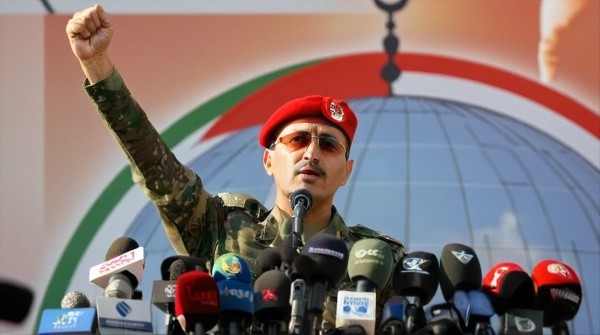Iran’s Plan to Strike Back Against the U.S.
Iran’s Military Preparations Following U.S. Attacks
Loading...

The spokesman for the Yemeni Armed Forces says the country’s naval units have carried out separate attacks on two ships affiliated to Israel as part of a maritime campaign in support of the Palestinians in the Gaza Strip.
In a significant escalation of maritime hostilities, the Yemeni Armed Forces have launched attacks on vessels affiliated with Israel, asserting their support for the Palestinian cause amid ongoing conflict in Gaza. Brigadier General Yahya Saree, the spokesman for the Yemeni military, announced these operations during a live televised address from the capital, Sana’a, on Thursday evening.
Attacks on Israeli-Linked Vessels
The Yemeni naval units targeted the Sounion oil tanker while it was navigating the Red Sea. Saree reported that the vessel was struck with precision, putting it at risk of sinking. He emphasized that the Sounion is owned by a company with connections to Israel and had violated a ban on entering ports in occupied Palestine. Following the attack, the European Union's Red Sea naval mission, known as "Aspides," confirmed that the crew of the Greek-flagged tanker had evacuated safely after the incident, which occurred near Yemen's strategic port city of Hudaydah.
This incident marks the third attack on a vessel operated by Athens-based Delta Tankers in the Red Sea within the same month. Delta Tankers reported that the attack resulted in a fire onboard, which the crew managed to extinguish. The United Kingdom Maritime Trade Operations (UKMTO) agency noted that the attack caused the Sounion to lose engine power, and it is currently anchored between Yemen and Eritrea.
Second Target: SW North Wind I
In addition to the Sounion, Yemeni forces also targeted the SW North Wind I, a vessel linked to a company with business ties to Israel. This attack occurred while the ship was sailing in the Gulf of Aden. The UKMTO reported that the SW North Wind I experienced an explosion nearby, resulting in minor damage after an encounter with an uncrewed surface vessel (USV) approximately 57 nautical miles south of Aden.
Saree reiterated that the Yemeni military would persist in its operations supporting the Palestinian people as long as Israel continues its military actions and blockade against Gaza. The ongoing conflict has resulted in a staggering humanitarian toll, with reports indicating that over 40,000 Palestinians have been killed, predominantly women and children, and tens of thousands more injured or missing.
Broader Context of Yemeni Military Operations
The recent attacks are part of a broader maritime campaign by Yemeni forces, which have vowed to target any ships heading to Israeli ports, regardless of their nationality. This strategy is framed as a response to the humanitarian crisis in Gaza, where the Israeli military has been conducting extensive operations since the onset of the conflict. The Yemeni military has previously stated that it would expand its operations beyond the Red Sea to include the Mediterranean Sea if the situation in Gaza does not improve.
The Houthis, who control significant portions of Yemen, have been increasingly vocal about their intentions to disrupt maritime traffic linked to Israel. They have warned international shipping companies against cooperating with Israeli ports, framing their actions as a legitimate response to what they describe as Israeli aggression.
Conclusion
As tensions escalate in the region, the Yemeni Armed Forces' targeting of Israel-linked vessels underscores the complex interplay of military, political, and humanitarian factors at play. With the ongoing conflict in Gaza continuing to draw international attention, the situation remains fluid, and the potential for further escalation in maritime confrontations looms large. The Yemeni military's commitment to supporting the Palestinian cause through targeted operations reflects a broader regional sentiment and highlights the intricate dynamics of the Middle Eastern geopolitical landscape.
BMM - MBA
Iran’s Military Preparations Following U.S. Attacks
Troops remain in five strategic locations, raising fears of renewed tensions and long-term occupation.
Opposition forces have taken control of the capital after a significant offensive. Here is how it unravelled.
